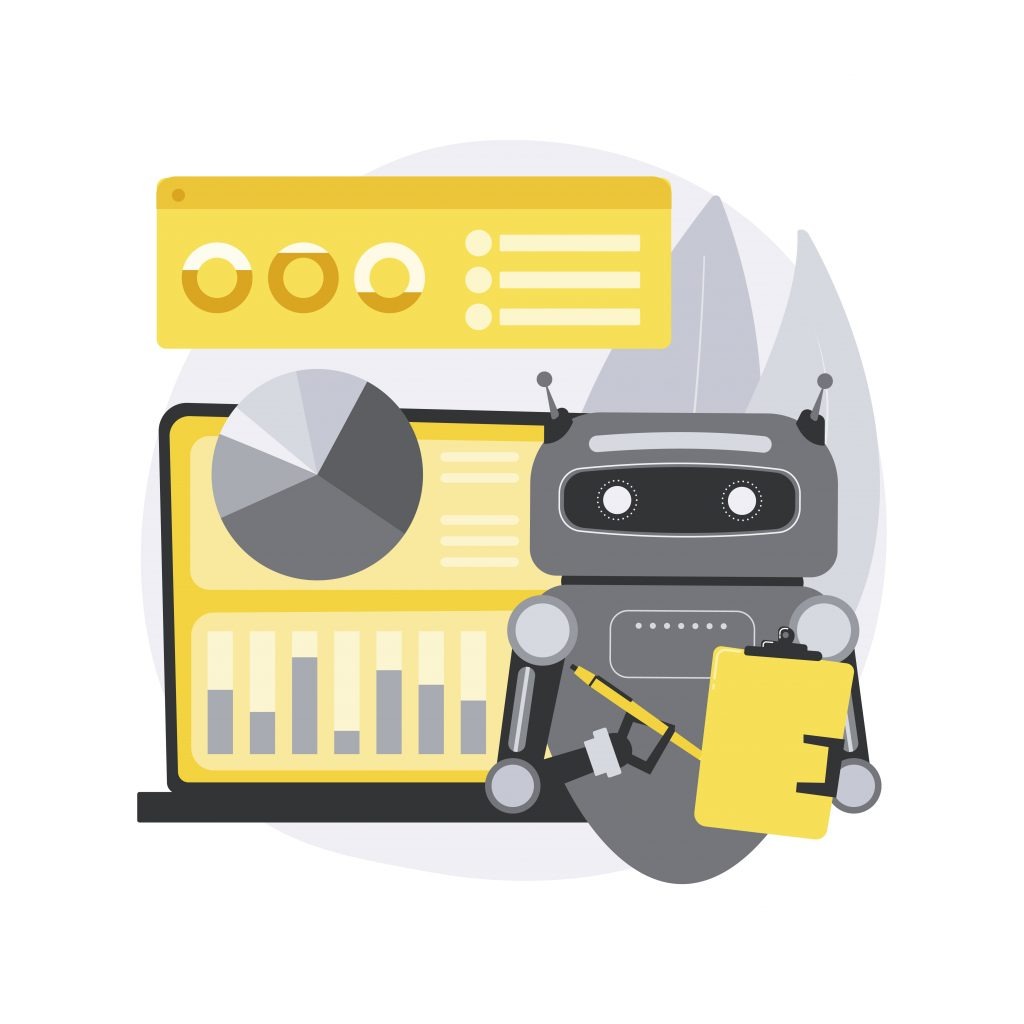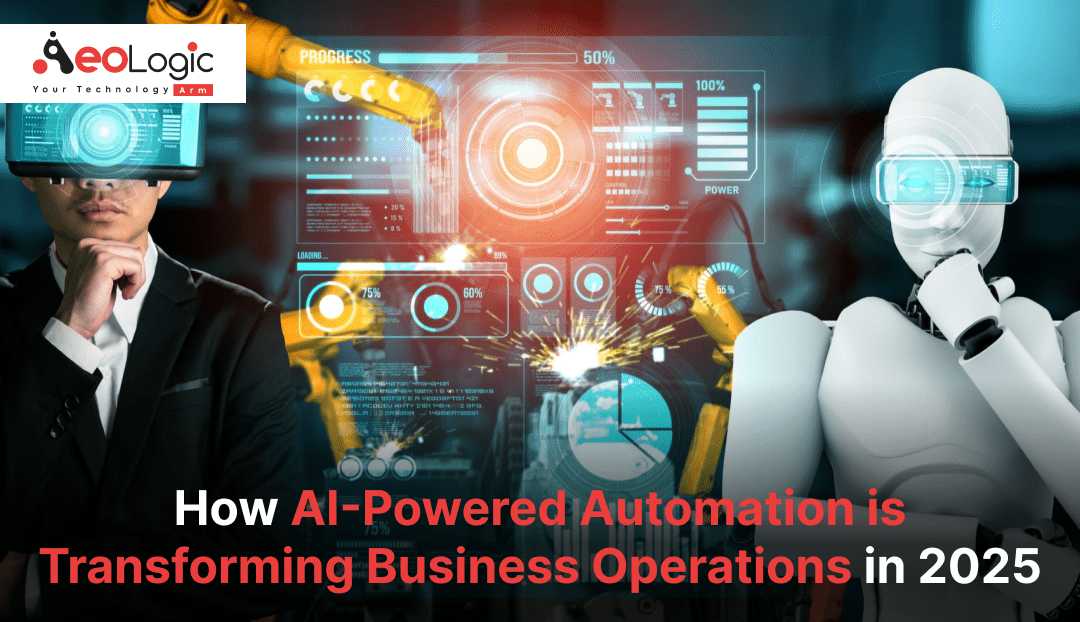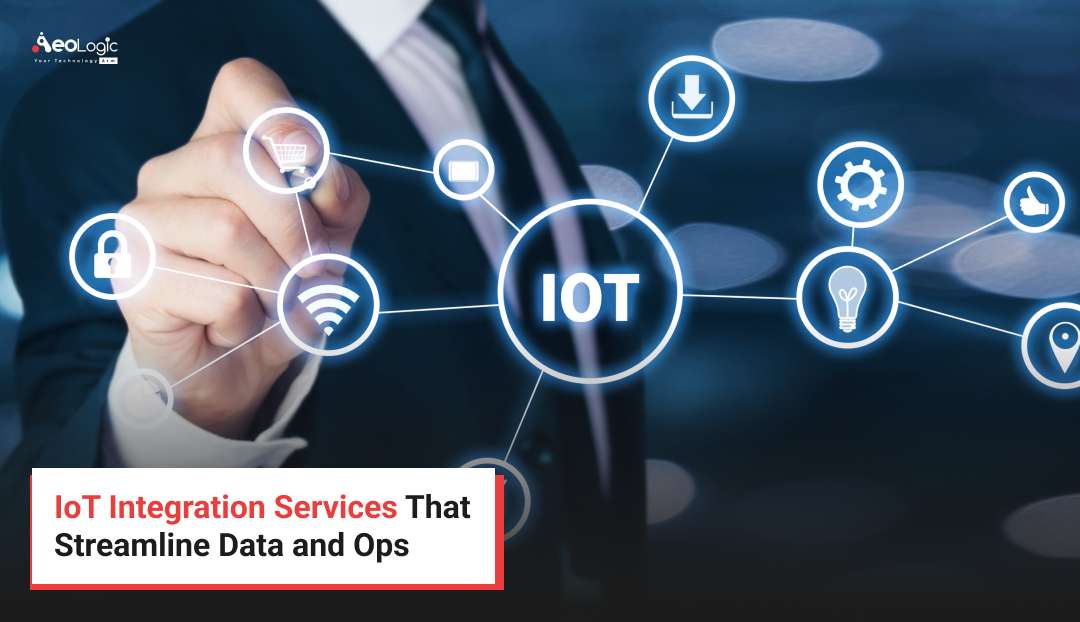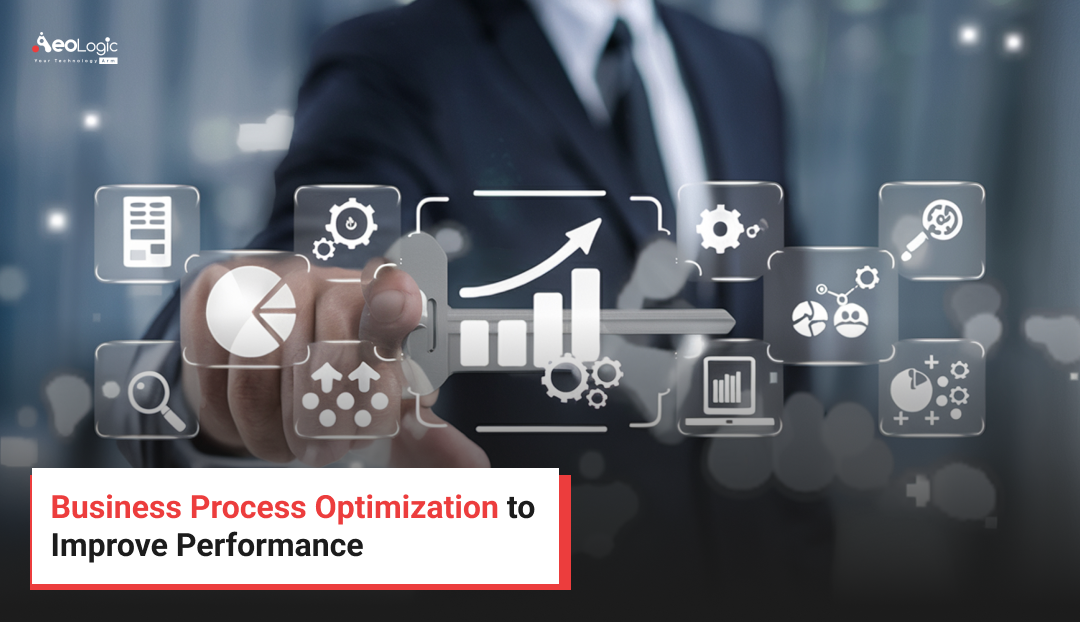Businesses have gotten many benefits in the last few decades with the help of technology. The integration of technologies enhanced business operations. The integration of information technology in the previous decades made businesses grow 64% of organizations plan to build new digital businesses to stay competitive. As 69% of IT decision-makers view digital transformation as a way to improve process efficiency.
Among the many technologies that have contributed to enhancing businesses, AI-powered automation is one of the most advanced technologies that have provided business operations to a new height. AI and ML automation have improved operational efficiency by an average of 40% across sectors. 82% of organizations now require machine learning skills. AI and ML will generate $4.4 trillion in business value by 2025. The global machine-learning platforms market is expected to reach $31.36 billion by 2028. These above-mentioned stats define the bright past, present, and upcoming challenging times that can be enhanced with AI-powered automation for businesses.
Overview

AI-powered automation is revolutionizing company operations by improving productivity and decision-making via real-time analytics. It facilitates flexible, scalable operations, lowers expenses by optimizing repetitive procedures, and makes individualized customer experiences possible through chatbots. Businesses can concentrate on high-value operations because of enhanced staff capabilities, better cybersecurity, and optimized supply chains.
By 2025, automation driven by AI will be more than just a technical development; it could surely be a strategic need for companies looking to prosper in a market that is becoming more competitive and complex. Organizations may increase productivity, innovate, and better serve customers by embracing these tools, which eventually spurs growth and success. This is going to change the face of business operations in 2025 and for the upcoming years.
In this article, we will see the role of AI-powered automation in 2025 for business operations. We will see some other details like benefits, challenges, etc, and in the end, we will end the discussion with a conclusion paragraph.
Also Read: The Role Of Generative AI Solutions for Business
What is AI-Powered Automation in Transforming Business Operations in 2025?
AI-powered automation generally refers to using AI to improve data-driven decision-making, automate repetitive jobs, and personalize consumer interactions to expedite company operations. It lowers expenses, increases operational efficiency, and allows companies to grow in response to market demands.
Automation individually also has the potential to benefit the business’s operations but with the integration of AI, there can be the ability to analyze data that helps to improve overall decision-making on any operations. This can reduce human labor as repetitive tasks can be automated and let workers work on more complex tasks. This can improve overall efficiency for operations as well as for organizations.
How AI is Transforming Industries
What specific methods are Global 1000 companies using AI to improve operational efficiency? Let’s examine how a few distinct industries are using AI to cut expenses, increase productivity, enhance customer experiences, get rid of procedures that are prone to human error, and boost profitability.
AI Automation Technology for Banking
-
- AI is used by retail banking institutions to personalise customer experiences, including onboarding and product recommendations.
-
- AI automation technology is also used to detect fraudulent activity, process credit scores, scan personal documents, approve credit, and trigger disbursement.
-
- These new capabilities have revolutionised risk assessment and improved financial institutions.
AI Automation Solution for Insurence
-
- AI is already being adopted by the insurance sector, which is changing operations such as fraud detection and customer support.
-
- Claims management has also benefited greatly from automation technology, which enables insurers to process more claims more quickly, enter less data, forecast the results of those claims, and even determine which claims need human review.
Automation Solutions in Retail
-
- Retailers have been able to cut down on the time and effort needed to handle tickets by using algorithms and historical data.
-
- Retailers worldwide are using AI to lessen supply shortages or overages, boost income, and improve efficiency in a variety of areas, from consumer suggestions and sales forecasting to customer service and inventory optimisation.
-
- Customer service and helpdesk ticket processing are two areas where automation has proven especially helpful.
Also Read: Why Custom AI Solutions Are the Future of Data Analysis and Reporting
Benefits of AI-Powered Automation for Transforming Business Operations in 2025
There are a lot of benefits of AI-powered automation for transforming business operations in 2025. Here are a few top benefits mentioned below.
Increased Efficiency
In a business, many repetitive operations take a lot of time for workers. This cannot help to an overall increase in efficiency. With the help of AI-powered automation, employees may concentrate on higher-value jobs by automating monotonous operations, which speeds up workflows and boosts output. This overall helps to increase efficiency in the upcoming 2025 year.
Enhances Decision Making
To make decisions, businesses need to have insights that could justify their decisions. Only automation cannot help to give insights as AI can. Artificial intelligence’s ability to analyze data can be a game changer for decision-making for the 2025 year. Businesses may swiftly make well-informed decisions and react proactively to market developments thanks to AI analytics’ real-time insights and predictive capabilities.
Personalized Customer Experience
Personalization is an aspect that can impress customers to reach the company again. This aspect should be enhanced and AI-powered automation can play an important role in enhancing it in 2025. AI can analyze the history of customer activities and automation can automatically recommend services or products based on their interest. This overall enhances the customer experience.
Improved Accuracy
In 2025 and the upcoming years, it is important to improve the accuracy of business operations to stay ahead in this competitive world. Manual handling of operations cannot improve accuracy whereas AI-powered automation-based robots, machinery, and systems can operate automatically with accuracy.
Sustainability Initiatives
Business operations should not only be better but also need to be sustainable for our environment. There is a vast amount of waste generated per day that needs to be reduced for sustainability. AI-powered automation can promote corporate responsibility and sustainability goals by assisting organizations in monitoring and minimizing their environmental impact. 
Challenges with AI-powered Automation
We have seen a lot of benefits of AI-powered automation for businesses in 2025. There are a few challenges too as here are a few mentioned below.
-
- The initial investment is too much while implementing AI and automation. This cannot be affordable for many small businesses so it could be a challenge for many.
-
- Employees may resist new technologies as this can be a fear of job replacement for them. So this is also a serious issue for upcoming years.
-
- Dependence on technology can limit thinking as an over-reliance on automation may result in less human control, leaving businesses open to mistakes or system failures.
Also Read: Impact of Artificial Intelligence on the Future of Workforces
Final Words
By 2025, automation powered by AI is expected to significantly improve business operations. Business organizations may react to changes in the market and customer demands more quickly by optimizing procedures, increasing productivity, and facilitating data-driven decision-making.
In the end, the technology boosts growth and competitiveness by lowering operating costs, streamlining supply chains, and fostering individualized experiences. There are a few challenges too but surely cannot overcome the beneficial aspects. Organizations may prosper in a more dynamic and complicated environment by strategically embracing AI-powered automation.

I’m Deepika Pandey, an SEO strategist and content writer with 6+ years of experience. I create SEO-friendly content that drives traffic and engages readers. I combine data insights with creativity to help businesses grow their online presence effectively.






